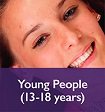Diabetes
Diabetes mellitus is a condition where the body makes too little of the hormone insulin or it cannot use it properly. There are many different types of diabetes conditions seen in children, including:
- Type 1 diabetes mellitus (T1DM)
- Type 2 diabetes mellitus (T2DM)
- Cystic fibrosis related diabetes (CFRD)
- Monogenic diabetes
Our team is dedicated to helping you and your family manage diabetes effectively so that you can lead a fulfilling and healthy life.
Who we care for
We care for children and young people diagnosed with all kinds of diabetes. Specialised care is provided at The Royal Hobart Hospital, The Launceston General Hospital and The Northwest Regional Hospital by a multidisciplinary team which may include paediatric endocrinologist, paediatrician, diabetes nurse educator, dietician, psychologist and social worker. All children with diabetes should be managed by a specialised paediatric diabetes service. Access to these three services in Tasmania is based on the region in which the child lives.
What to expect at a paediatric diabetes clinic
You and your child will receive education and training about their diabetes condition when they are first diagnosed. Part of this education will be delivered as an inpatient. Education will be continued in the outpatient setting.
Children with diabetes should see their medical team for appointments every three months. Children and families are able to access the diabetes allied health team for both phone advice and appointments outside of these clinic appointments.
At the diabetes clinic, the paediatric diabetes team will take a history of symptoms and medication, review blood glucose levels and insulin doses, examine your child and create a management plan. We recommend that before attending the clinic you consider doing the following:
- Upload your pump data (if applicable)
- Download and email your MyLife data (if applicable)
- Ensure your CGM or Libre is linked with the your paediatric diabetes service's accounts
- Make a list of all the questions you want to ask at the appointment or any concerns you have
You will usually have:
- Your height and weight measured – this helps check your growth and decide medication doses
- Your HbA1c done on a fingerprick blood test
Your diabetes team usually begins with
| The child (you) and family/caregivers | Children, young people and their families and caregivers are valued members of our health care team. You have a unique view on how your family works and the impact the condition has on your everyday life. We create management plans with your input. It is expected that children and young people will be actively engaged in their health care, at an age-appropriate level. |
| Paediatric endocrinologist | The paediatric endocrinologist is an expert in conditions affecting hormones, including diabetes. They will review your health at each clinic appointment, make sure you receive the care and tests you need and will be involved in making decisions about your care. The paediatric endocrinologist will also be an ongoing support to your paediatrician. |
| Paediatrician | Your paediatrician is a key member of your health care team, they provide specialist medical care and look at your health holistically. Your paediatrician often takes the lead in providing a diagnosis or organises referrals for tests or assessment with other health professionals. |
| Diabetes nurse educator |
For children and young people diagnosed with diabetes, the diabetes nurse educator is your main contact point. Depending on your needs, the nurse may provide assessment, education and support, giving you the information you need to care for your condition. They will help you to organise your care and
assist with communication between team members. You can talk to them if you have questions or concerns.
There are diabetes nurse educators located in: Hobart: (03) 6166 8175 or 0409 162 961 Launceston: (03) 6777 4145 Burnie: (03) 6493 6100 |
| Dietitian | The dietitian will assist in the assessment and management of your nutritional needs related to your condition. They will talk to you about your diet and make recommendations to support your health and growth. The neurology dietitian also provides support for children with carbohydrate counting. |
| Psychologist | A psychologist works with you to understand the impact your condition has on your life and helps you to overcome challenges, change your behaviour and improve your mental health. |
| General practitioner (GP) | Your GP takes care of your general health needs within the community. They will receive updates from the specialist paediatric diabetes team. |
Depending on individual needs the following health professionals may also provide care
| Social worker | Social workers can provide counselling and teach skills to help you cope with problems with your health, relationships or circumstances. They can help you understand your rights and help to advocate for you. |
| Pharmacist | The pharmacist will help you understand your medication and keep your medication plan as simple, safe and helpful as possible. The pharmacist can also give support to doctors as required. |
How to access the diabetes service
Any suspicion of diabetes in a child should be discussed immediately with the local paediatrician on call in your area and patients advised to attend the closest emergency department for assessment.
For ongoing outpatient clinic reviews, a general practitioner referral is required. Your GP can submit the referral by following the directions on the Department of Health, Tasmania's outpatient clinics website.
Other supports >>
| Child Health and Parenting Service (CHaPS) |
CHaPS work in partnership with families of children 0-5 years of age and aim to enhance the health and wellbeing of all young children in Tasmania. They provide child health and parenting information, support, assessment and advice. Services provided include completion of age-related growth and developmental
assessments from 2 weeks to 4 years of age and assistance with breastfeeding/feeding issues, nutrition, sleep and settling, post-natal depression and wellbeing, child-parent communication and behaviour management. Services are provided from many community locations.
You can contact CHaPS directly on 1300 064 544 24/7 parenting information and support is available through an associated service, The Parent Line on 1300 808 178 |
| School |
Through the Education Department, schools can access extra support or services to meet health and disability needs. It is important to discuss any individual requirements with school staff.
The national Diabetes in Schools program supports children and their families to manage their diabetes at school. School staff can access online training of diabetes management and further resources to help support the child’s learning and participation at school. |
(Strong Families Safe Kids) | Some families may require increased support through a community organisation due to the complexity of their situation or other vulnerabilities. |
Contact us >>
| South | North | North West |
|---|---|---|
Royal Hobart Hospital Phone: (03) 6166 0000 | Launceston General Hospital Phone: (03) 6777 5247 | North West Regional Hospital Phone: (03) 6493 6300 Mersey Community Hospital Phone: (03) 6478 5219 |
Disclaimer: this website contains general health information and does not replace the advice of a health professional.














